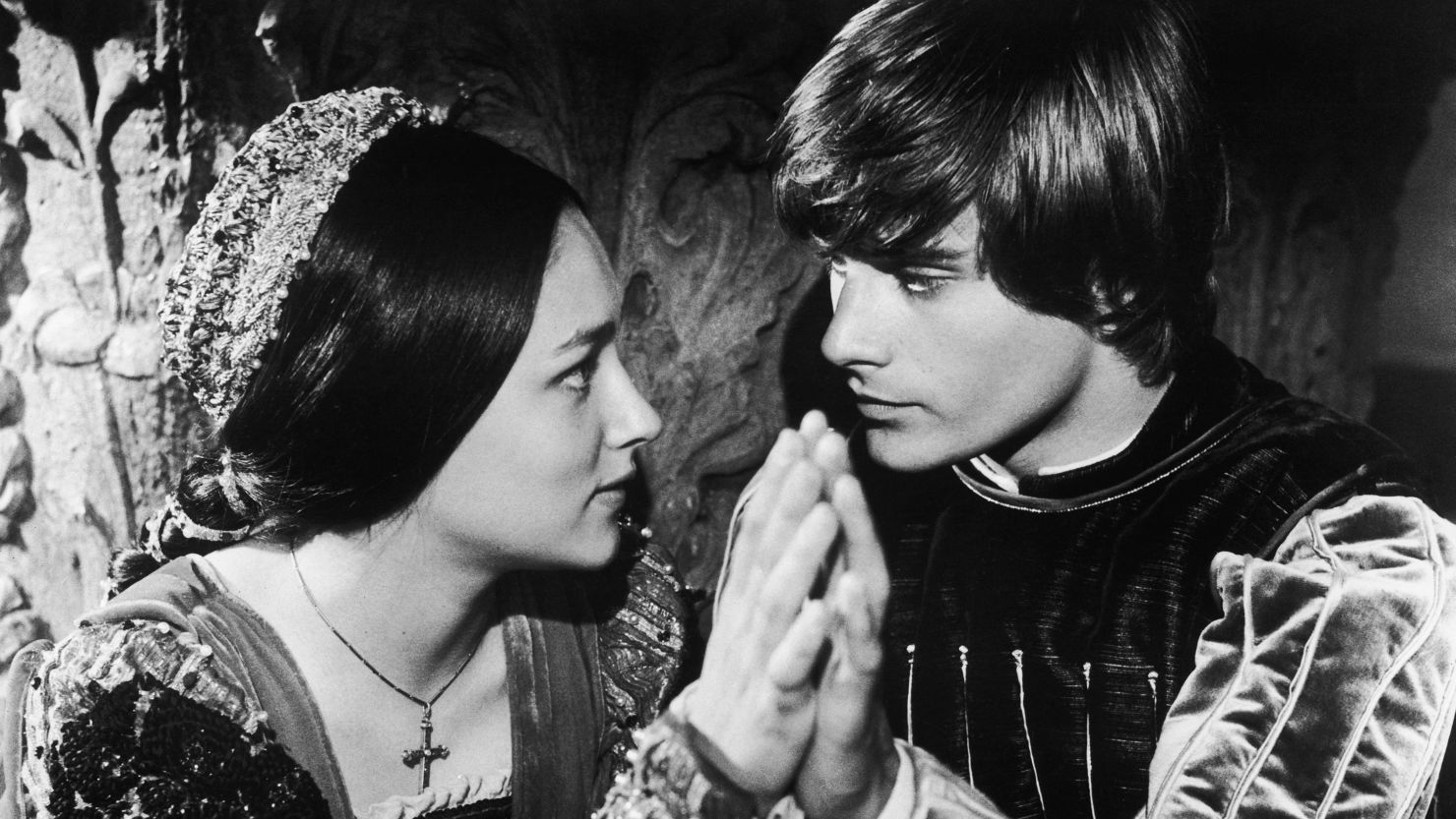Editor’s Note: Madeleine Deliee writes about culture, education, entertainment and parenting for The Washington Post, Saveur, Playboy, Shondaland and others. Follow her on Twitter at @MMDeliee. The opinions expressed in this commentary are those of the author; view more opinion articles on CNN.
Being a teenager means being vulnerable – physically and emotionally besieged by adolescent hormones and the confusion of no longer being a child but not yet being fully an adult. It’s a time many of us wince to recall, and one I wouldn’t want to undertake again.

As someone who came of age before the ubiquity of social media, I’m grateful that little record of my own experience exists, for the sake of the teenage comments that still make me cringe all these years later and the photos of the uncomfortably changing body that I didn’t yet know how to inhabit. For Olivia Hussey and Leonard Whiting, the then-teen stars of Franco Zeffirelli’s 1968 film “Romeo and Juliet,” that record of adolescence is not only public, it’s also famous, unclothed and, allegedly, exists without their informed consent.
Hussey and Whiting recently filed suit against Paramount with accusations of sexual exploitation and distributing nude images of adolescent children. The complaint alleges that the actors, 15 and 16 at the time, were initially told by Zeffirelli (who died in 2019 and is not named in the suit) that the scene would be done with underwear. Later, they allege he said that “they must act in the nude or the picture would fail.” According to the complaint, the actors were assured that body makeup and specific camera positions would be used and that no nudity would be photographed and released in the film.

The scene that was ultimately included and shown in theaters showed Whiting’s buttocks and Hussey’s bare breasts. The actors, who are now in their 70s, are seeking damages of $500 million. The suit was filed now, due to the temporary suspension of the statute of limitations for child sex abuse cases by the California Child Victims Act. CNN has attempted to reach legal representatives for Paramount Studios and Zeffirelli’s son for comment. On Friday, son Pippo Zeffirelli released a statement calling Hussey and Whiting’s actions “embarrassing” and saying the love scene was “far from problematic.”
Hussey and Whiting’s assertions may seem odd to those without experience in the film industry, but actors are often uninformed about what exactly will be shot. They perform the scene, unclear on what is recorded until they later view it. Beyond this, actors – especially young, inexperienced ones – are highly aware of their expendability. There’s always someone else eager for the spotlight. This is all the more true on a project as high profile and prestigious as a Zeffirelli-directed film of what is one of Shakespeare’s most famous works.
The knowledge that a career-making part can easily vanish motivates some questionable decisions, and the protections that should help a young performer balance that out aren’t always present. I know this firsthand, based on my own experience as an actor in the 1990s.
Among other occasions, I worked on a movie that needed actors willing to do unclothed background work. I was repeatedly and aggressively pushed to accept the offer. When I finally sought assistance from my union representative, rather than providing guidance and assistance in navigating an unwanted negotiation for on-screen nudity, he advised that I should leverage the production’s interest in me for as much money as I could.
It was hard to say no. I was starting out, fearful of alienating connections and far from rich. But I turned the job down anyway, my misgivings about the objectification outweighing the potential benefits. That incident clearly demonstrated to me that security is often regarded as unimportant, but it doesn’t have to be that way.
Alicia Rodis is an actor and the in-house intimacy coordinator for HBO (which shares a parent company with CNN), a role that didn’t exist a decade ago, let alone over 50 years back when Hussey and Whiting were teenagers. She acts as liaison between the production and the performers, and described her work to me as “like a stunt coordinator, but for nudity, physical intimacy, and sexual content.”

Rodis also said she is “an advocate for actors,” ensuring that they’re “fully informed” on what will be filmed and how. Rodis believes strongly in a film production’s “huge responsibility” toward ensuring a safe work environment. Delivering that depends greatly on clear communication and respect for performers’ well-being.
Today, Zeffirelli’s approach would not exist, as SAG-AFTRA, the onscreen actors’ union, does not allow minors to appear naked on film – rather, it requires the use of legal-aged body doubles.
Rodis’s take on the “Romeo and Juliet” suit? “Having an intimacy coordinator is to prevent exactly this,” she said. “It sounds like miscommunication or straight-up lies occurred.”
That miscommunication or untruth means that, whatever the legal finding, viewing the movie without misgivings should now be impossible. Many of us saw it when we were in school and were assigned to read the play. Teachers still show it to classes of students as young – or younger – and inexperienced as the performers onscreen.
But in light of Hussey and Whiting’s accusations, it feels callous to continue doing so. Parents and teachers tell teens to avoid sexualizing their own images, but the movie effectively glorifies the same act – just without agency. How can adults knowingly share and promote work that capitalized on sexualizing minors’ likenesses allegedly without their consent?
If adolescence is difficult and vulnerable in the best of circumstances, then placing two teenagers under the scrutiny of a movie camera and asking them to enact an intimate scene that’s captured forever on film, before they can even independently sign a contract, can’t be considered anything but abuse. Maybe the suit will go to court; maybe they’ll settle. But, going forward, the allegation of abuse will always tarnish the work. It’s a tragedy today’s filmmakers would do well to study.

